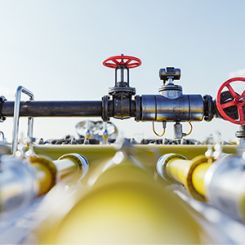Carlos Uribe, general manager of water and general industry at Milton Roy, answers questions for the Pumps & Systems annual State of the Industry survey of pump professionals. For a comprehensive look at our state of the industry coverage, click here. How are international politics and issues like the steel tariffs affecting your business and/or the pumps industry overall? There is a cost impact with some of the raw materials and all the tariffs attached to those materials. We do see the impact in the U.S. Being a global company, we do have factories in different regions. We can move around and get products from India instead of China and France instead of Asia. If you rely on China on this particular moment then I can expect that our counterparts are probably suffering and that will be transferred to the end users. Are changes in the workforce affecting your company? What are you doing to try to mitigate issues related to the skills gap? What are you doing to attract millennials and younger workers to the field/your company? There certainly is a challenge. There is a gap on the skill level. This is a very competitive market. In the U.S. the economy is in good shape, the employment rates are low. We have been a little creative as far as recruiting and retaining people. New graduates can come and work on the engineering side and on the production side. They can work part time on the production line and see how a part is assembled—that builds some knowledge that then they can translate into engineering, design and R&D. The other thing we’re doing is investing in new products and new technologies. New graduates and millennials, we want to make the pump industry a little more sexy for that generation. So, all the platforms we’re working on and designing, you don’t see the typical mechanical engineer, or electronic, communications and controls being interested in the pumps industry. Do you think the recent approval of the water infrastructure bill will impact your business? How so? It is clear that the U.S. needs to make some investments and upgrades on infrastructure. We are happy to see that the bill was approved. We are hopeful that that will be tied with significant capital investment. We hope that our pumps will be used. How have advancements in IIoT affected your business? How do you predict they will continue to do so? IIoT is booming and growing and I think it’s here to stay. We’re starting to see more demand for connected devices. It’s more of an expectation now. Five years ago it was fairly new, but now it’s more of an expectation. You’re supposed to have some kind of communications platform. We released a new communications platform and we’ll continue investing in new connectivity devices. The expectations from engineering [are that] you should have access to analytics for all of the devices. What are you most optimistic about in 2019? 2019 looks promising. It’s a very positive or optimistic outlook. If you look at what’s happening in Asia, the growth, movement from rural to urban sectors, and that will result in demand for new infrastructure. We also expect to see some regulations in the water discharge side of the business. That will help industries solve the problem of wastewater discharge. We’re seeing a lot of activity and the economy is good in the U.S., and we expect Asia to be on a positive trend. 2019 looks very promising.
Carlos Uribe on tariffs, the skills gap and IIoT
Milton Roy
01/01/2019

